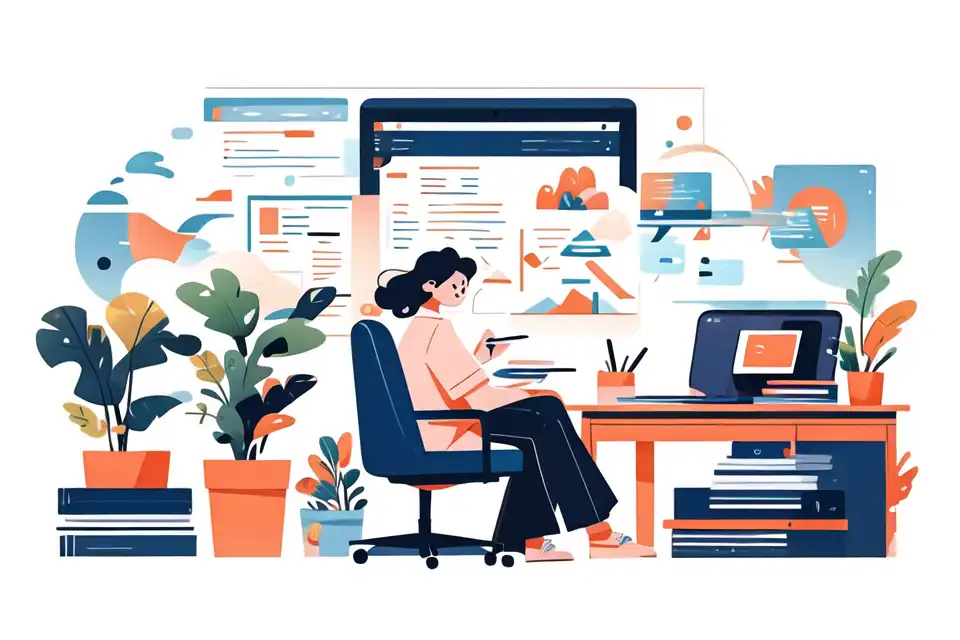How to Negotiate a Salary Increase Professionally
Master the art of professional communication in business settings with expert guidance. Learn how to negotiate a salary increase professionally.
Try Lark for Free
Salary negotiation is an integral part of professional growth and recognition. Being equipped with the knowledge and skills to negotiate a salary increase professionally is essential for ensuring that individuals are adequately compensated for their contributions and expertise.
Understanding the importance of negotiating salary professionally
Advantages of Mastering Negotiation Skills
Negotiation skills are not only beneficial during salary discussions but also hold immense value in various aspects of professional and personal life. By mastering negotiation, individuals can:
- Secure better compensation packages.
- Strengthen their professional reputation.
- Address concerns and conflicts effectively.
Key Attributes of a Professional Negotiation Approach
When negotiating a salary increase, professionals should embody the following attributes:
- Preparation: Thorough research and understanding of market standards.
- Confidence: Assertive yet respectful communication of individual value.
- Flexibility: Willingness to explore different compensation structures.
Handling Difficult Conversations with Professionalism
Approaching salary negotiations as a collaborative discussion rather than a confrontation can lead to more constructive outcomes. Emphasizing the mutual benefit of reaching a fair agreement creates a positive and professional environment for negotiation.
Use Lark Messenger to elevate your team communication.
Practical examples of negotiating salary professionally
A typical scenario: inexperienced negotiation leading to missed opportunities
A typical scenario: inexperienced negotiation leading to missed opportunities
In this scenario, an individual lacking negotiation skills may downplay their achievements and fail to articulate their value effectively. As a result:
-
Common Mistakes: Focusing solely on personal needs and not aligning with the organization’s interests.
-
Best Expression in Quotes: “I believe my accomplishments have significantly contributed to the company's growth and should be reflected in my compensation.”
A common scenario: fear-based negotiations resulting in compromised outcomes
A common scenario: fear-based negotiations resulting in compromised outcomes
When individuals negotiate from a place of fear, they often accept initial offers without fully exploring their options. This approach can lead to:
-
Common Mistakes: Underestimating one's worth and settling for less than deserved.
-
Best Expression in Quotes: “While I understand the market standards, based on my experience and the value I bring, I believe a higher compensation would be more appropriate.”
A real-life scenario: overly aggressive negotiation leading to damaged relationships
A real-life scenario: overly aggressive negotiation leading to damaged relationships
Individuals who adopt an aggressive approach risk straining their relationship with employers and may generate negative impressions. This can result in:
-
Common Mistakes: Using ultimatums and threats to push for higher compensation.
-
Best Expression in Quotes: “I am genuinely committed to the company's success and believe that a mutual agreement on compensation would reflect this commitment positively.”
The consequences of ineffective negotiation
Impact of Poor Negotiation Tactics on Professional Image and Career Growth
Failing to negotiate a salary increase professionally can lead to:
- Undermining one's professional worth and credibility.
- Limited opportunity for financial advancement and professional growth.
- Reduced motivation and job satisfaction due to feeling undervalued.
Financial Implications of Missed Opportunities
Unsuccessful negotiations can lead to significant financial implications, including:
- Foregone opportunities for increased earnings and benefits.
- Inadequate financial resources to support personal and professional aspirations.
Effect on Overall Job Satisfaction and Motivation
An unaddressed dissatisfaction with compensation can lead to diminished:
- Motivation and productivity at work.
- Emotional well-being and job satisfaction.
- Sense of commitment and loyalty to the organization.
Learn more about Lark x Communication
Use Lark Messenger to elevate your team communication.
Refining negotiation technique
Identifying and Emphasizing Unique Value Propositions
When negotiating, emphasize the unique value and contributions one brings to the organization:
- Highlight key achievements and their direct impact on the organization.
- Link individual contributions to the company's goals and success.
Utilizing Effective Persuasive Communication
During negotiations, effective communication plays a vital role, involving:
- Articulating one's case persuasively and confidently.
- Active listening and addressing the employer's concerns.
Handling Objections and Rejections Professionally
When faced with objections or rejections, professionals should:
- Acknowledge concerns and offer constructive responses.
- Demonstrate flexibility while maintaining their value proposition.
Do's and don'ts in salary negotiation
Do's
- Highlighting Achievements and Unique Contributions: Emphasize specific achievements and contributions that add value to the organization.
- Maintaining Professionalism and Composure: Approach negotiations with a respectful and professional demeanor.
- Collaborating and Building Rapport: Foster a collaborative environment by recognizing the employer’s perspectives and needs.
Don'ts
- Avoiding Aggressive or Confrontational Behavior: Refrain from adopting an aggressive or confrontational negotiation style.
- Being Overly Rigid and Uncompromising: Demonstrate flexibility and openness to alternative compensation structures.
- Disclosing Confidential Information Carelessly: Exercise caution when sharing sensitive or confidential information.
Conclusion
In conclusion, mastering the art of negotiating a salary increase professionally is a valuable skill that can significantly impact one's professional trajectory and financial well-being. By understanding the significance of strategic negotiation tactics, individuals can approach salary negotiations with confidence and professionalism, ensuring that they are adequately compensated for their contributions and expertise.








